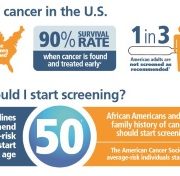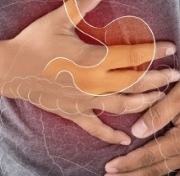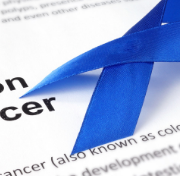Colorectal Cancer and Age, Race, and Ethnicity
Colorectal cancer is not experienced equally by everyone. In the past several years, younger people have experienced increased colorectal cancer rates and deaths. Additionally, Black people and American Indians experience more cases of this cancer and related deaths. Here’s what you need to know about how this disease affects different people.
Colorectal Cancer in Younger Adults
Rates of colorectal cancer have been on the rise for younger and younger adults over the last several years. According to the American Cancer Society, while rates for adults 50 and older have fallen due to increased screenings, the opposite trend has occurred for younger adults. Recently, people 65 and older have experienced a decrease of around 3% per year from 2011 to 2016. In contrast, people ages 50 to 64 have seen rates rise by 1% per year in the same time frame. People under 50 have actually seen rates rise by 2.2% per year in the same window. Clearly, younger adults are seeing steeper increases in cases. Death rates have followed similar patterns. Death rates for colorectal cancer also vary by age group. Between 2008 and 2017, death rates fell by 3% per year in people 65 and older and dropped by 0.6% in people 50 to 64. However, they rose by 1.3% in people younger than 50.
Fortunately, colorectal cancer can be very treatable if it’s caught early. Younger adults should be aware of warning signs. These include changes in bowel movements (particularly over two weeks or more), rectal bleeding, unusual stools, and tiredness or low energy. If they have any of these symptoms, they should see their doctor.
Disparities Based on Race and Ethnicity
Along with age, looking at colorectal cancer rates and death rates based on race and ethnicity shows significant variation. The American Cancer Society’s data from 2012-2016 showed that rates were dramatically different based on race. Rates for Asian people and Pacific Islanders were the lowest at 30 per 100,000. Non-Hispanic white people had a rate of 39 per 100,000, and Black people had a rate of 46 per 100,000. Alaska Natives and American Indians had the highest rate, at 89 per 100,000. Death rates vary significantly as well- colorectal cancer rates are around 20% higher for Black people than non-Hispanic white people, but death rates are nearly 40% higher in Black people. Additionally, for Alaska Natives and American Indians, death rates are about double the rate for Black people.
Early Screenings Save Lives
While many of these statistics are troubling, we do know that screening early is an effective way to catch more cases of colorectal cancer. More and more organizations, including Gastro Health Partners, are pushing for earlier screenings and research on the disparities around this disease. Early screenings save lives.
Our experienced team at GHP has years of experience screening for and treating colorectal cancer. We can help establish the best plan of care for your situation. Contact any of our office locations to learn about the options we offer and schedule an appointment today.













